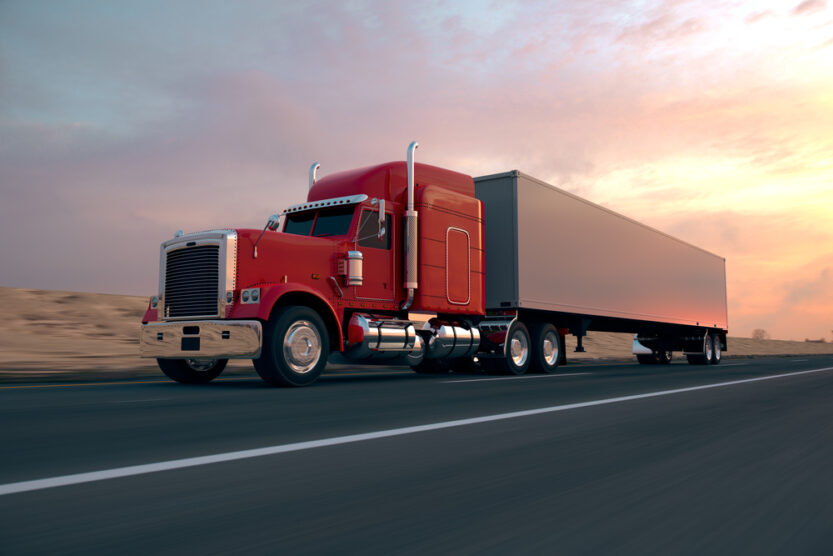Harlene Labrum | April 4, 2025 | Truck Accidents
Understanding Gross Vehicle Weight Rating

Semi-trucks, tractor-trailers, 18-wheelers, tank trucks, and other commercial motor vehicles weigh significantly more than the average passenger vehicle. Trucks are divided into classes based on their gross vehicle weight rating (GVWR). A truck’s weight also impacts the type of commercial driver’s license (CDL) you need to operate the vehicle in question.
Vehicle Weight Classes and Categories
There are three GVWR categories based on the gross vehicle weight rating of a vehicle:
- Light duty trucks weigh less than 10,000 pounds
- Medium duty trucks weigh between 10,001 and 26,000 pounds
- Heavy duty trucks weigh over 26,001 pounds
Each category has two or more vehicle classes based on weight. For example, the medium duty category has four classes of vehicles.
What Is Gross Vehicle Weight Rating for Commercial Trucks?
GVWR is the maximum weight of a vehicle set by the vehicle manufacturer. It is different from your vehicle’s weight. Instead, the GVWR is the maximum weight a truck can weigh with passengers, cargo, and fuel and operate safely.
You calculate the GVWR for a vehicle by adding:
- The vehicle’s weight when it is empty
- The weight of accessories, fuel, passengers, and anything else in the truck’s cabin
- The weight of the hitch or the cargo
Generally, a truck’s gross vehicle weight rating is printed inside the door frame to make it easy to locate. The manufacturer places the GVWR here because it is crucial not to overload a truck. Overloaded trucks can increase the risk of an accident.
Laws Restricting Cargo Weights for Trucks
Federal and state laws restrict how much a truck can weigh when fully loaded. Truck drivers could lose their driving privileges and trucking companies could face fines for operating an overloaded truck. Exceptions may allow trucks to carry heavier loads in some cases, but the operator may need a special permit to carry heavy loads.
The Risks of Overloaded Truck Accidents in Tennessee
Trucking companies and shippers want to maximize their profits. Therefore, loading as much as possible on a truck per trip can maximize cost-effectiveness and increase profits. However, when a truck is overloaded, it could lead to serious issues, such as:
- The extra weight can cause tires to burst, resulting in the driver losing control of the truck
- Trucks with too much weight take longer to stop, which could lead to a rear-end accident
- Trucks may run out of control going downhill because too much weight increases speed
- Overloaded trucks may lose cargo, causing traffic accidents
- Steering and shifting become more difficult with heavier loads
- Overloaded trucks may have a higher risk of tipping over, especially when going around curves
A crash caused by an overloaded truck can cause catastrophic injuries for accident victims. Truck accidents often result in severe injuries. If the truck overturns or is traveling faster than it should because of the heavy load, the severity of the crash could increase.
Who Is Responsible for Damages Caused by an Overloaded Truck Accident in Nashville, TN?
Determining the fault for an overloaded truck accident can be challenging. It may require the assistance of accident reconstructionists and other experts to determine how the truck’s weight contributed to the cause of the accident.
All parties who contributed to the cause of a truck accident could potentially be liable for damages. Examples of liable parties include:
- The trucking company
- A truck driver
- Loaders and shippers
- Repair and maintenance facilities
- Truck and parts manufacturers
- Other motorists
- Government entities
The specific factors involved in the accident determine the parties liable for damages. Accident victims may be entitled to economic and non-economic damages, including emotional distress, medical bills, impairments, lost wages, and other losses and harm. The value and type of damages received for a truck accident depend on the victim’s injuries and other factors.
Schedule a Free Consultation With a Truck Accident Lawyer
Truck accidents are complex personal injury cases. An experienced truck accident lawyer can help you make the most of your claim. Contact an attorney today to get started with a free case review.
Contact the Nashville Truck Accident Attorneys at Labrum Law Firm Personal Injury Lawyers Today
For more information, please contact the Nashville truck accident law firm of Labrum Law Firm Personal Injury Lawyers, to schedule a free consultation today.
We proudly serve Nashville, Brentwood, and its surrounding areas in Tennessee:
Labrum Law Firm Personal Injury Lawyers – Nashville
315 Deaderick St, Suite 1525
Nashville, TN 37238
(615) 265-0000
Labrum Law Firm Personal Injury Lawyers – Brentwood
320 Seven Springs Way, Suite 250
Brentwood, TN 37027
(615) 265-0000
